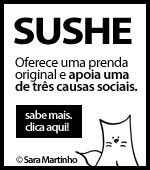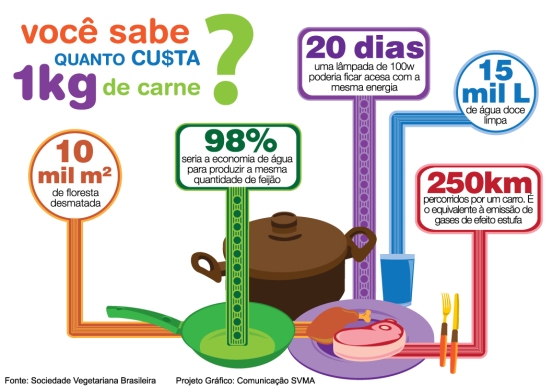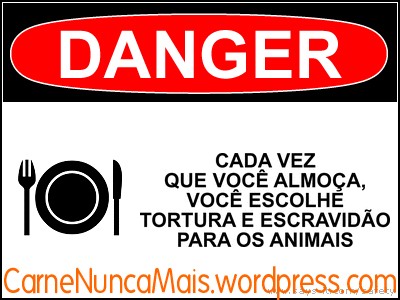 NAV (National Anti-Vivisection Society)
NAV (National Anti-Vivisection Society) Desde o dia 11 de março de 2009 é ilegal testar ingredientes para cosméticos em animais em qualquer parte da União Européia, havendo ou não um método não-animal disponível. Até essa semana o teste de produtos acabados já era proibido, mas muitos produtos continham ingredientes que poderiam ter sido testados em cobaias. É também ilegal a venda de produtos que tenham sido testados depois dessa data limite.
Está proibido:
1. Testar ingredientes para cosméticos em qualquer parte da União Européia (parágrafo acima)
2. VENDER cosméticos que tenham sido testados em animais após esta data. A exceção é para os testes que serão banidos em março de 2013.
Os testes cosméticos foram banidos na Inglaterra desde 1998, graças à campanha da NAVS. Desde 2004 é ilegal testar em animais quando existem outras alternativas. Entretanto, ainda havia a possibilidade de comprar cosméticos com ingredientes testados em animais. As empresas podiam colocar “não foi testado em animais” já que estavam se referindo ao produto final e não aos ingredientes individualmente.
Segundo as pesquisas mais recentes, mais de 5 mil animais foram usados para testar cosméticos e produtos de higiene. Com a nova lei européia isso acaba – e caso desejem fazer novos testes terão de investir em metodologias de teste mais avançadas. Hoje existem mais de oito mil ingredientes seguros no mercado. Para que mais testes?
A lei impedirá a venda de cosméticos que foram testados fora da União Européia – claro que as empresas “exportavam” os testes para as subsidiárias fora da Europa. A proibição total de produtos testados em animais virá em 2013
March 11th sees historic ban on animal testing for cosmetics in the European Union
The National Anti-Vivisection Society (NAVS) welcomes this week, the historic ban on testing of cosmetics products on animals.
Although many UK shoppers think that animal testing for cosmetics is already banned, the truth is: animal-tested cosmetics from Europe and elsewhere are still for sale in our major High Street shops.
From March 11th, thousands of animals could be spared suffering, as it will be illegal to:
From March 11th, thousands of animals could be spared suffering, as it will be illegal to:
1.TEST ingredients for cosmetics on animals anywhere in the European Union, regardless of whether or not there is a non-animal alternative method available (testing on the finished products is already banned, but many products contain ingredients that have still been tested on animals)
2.SELL cosmetics in the European Union which have been tested on animals after this new cut-off date of 11 March 2009 (except for certain types of test which will also be banned on 11 March 2013)
Cosmetics testing has been banned in the UK since 1998, which the NAVS hailed as a massive victory after a long campaign. Since 2004, it has been illegal for finished cosmetics products to be tested on animals in the EU when there is a validated alternative available.
However, it has still been possible to buy cosmetics where the ingredients have involved animal testing. Companies could legally put ‘not tested on animals’ on the packaging as they are referring to the finished product, not the individual ingredients.
In the most recent statistics, more than five thousand animals were used in a year for cosmetics or toiletries testing. This testing will now have to stop, and the companies that have been testing their products on animals will have to take up new, advanced scientific methods from March 11th 2009. It’s reported there are already around eight thousand established ingredients on the market, so the NAVS says it is not necessary to test more.
As well as banning testing, an EU block on selling cosmetic products that have involved animal experiments after 11th March 2009 will also come into force. This will prevent the sale of cosmetics that have been tested outside the EU, some of them involving European companies that outsource the work overseas. Companies have been allowed to continue testing when they say a validated alternative is not available. Some exemptions apply to the sales ban, and these will finally also be completely banned by 2013.
The NAVS has been campaigning on cosmetics testing for more than 25 years, and real progress has been made. Some horrific tests have been carried out on animals, such as the Draize Test for eye irritation, where toxic substances were dripped into rabbits’ eyes. Skin irritation tests, skin sensitisation tests and allergy testing have also been used to test cosmetic products.
The cosmetics ban comes into force at a crucial time for animals in experiments. MEPs are currently deciding the fate of countless animals as they debate changing the European law on animal testing for the first time in more than 20 years.
The cosmetics ban comes into force at a crucial time for animals in experiments. MEPs are currently deciding the fate of countless animals as they debate changing the European law on animal testing for the first time in more than 20 years.
This has raised issues such as the use of primates, where 80% of European citizens have stated that they find primate use to be “not acceptable” (EC survey), and 55% of the European Parliament signed a call for a phase-out of primate use; as well as animal testing for everyday household products and regulating the severity of the most painful tests, which have major implications for animals.
Chief Executive of the NAVS, Jan Creamer, says “The NAVS worked tirelessly to achieve a ban on cosmetics testing in the UK, but many innocent shoppers don’t realise that products with ingredients tested on animals are still for sale on our shop shelves. When the ban on animal-tested cosmetics in the EU comes into force in March 2009, shoppers should then finally be able to buy with a clear conscience. It shows that a phased approach to banning animal testing is possible and achieves real results, and that approach can now be applied to other animal tests”.

























































Sem comentários:
Enviar um comentário